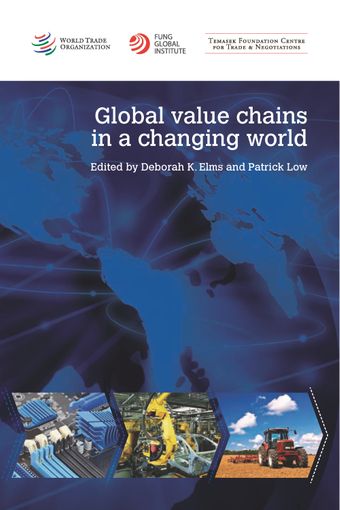The globalization of supply chains – policy challenges for developing countries

- By: Ujal Singh Bhatia
- Source: Global Value Chains in a Changing World , pp 313-328
- Publication Date: January 2013
- DOI: https://doi.org/10.30875/38073b4d-en
- Language: English
Global Value Chains (GVCs) represent the dominant form of cross-border economic organization for the production and delivery of goods and services, and developing countries have to deal with them to maintain and enhance their participation in the global economy. While GVCs are the product of the significant changes that have taken place in the global economy over the last three decades and market forces largely determine their scope and direction, governments still have an important role to play in influencing the nature and terms of participation of their firms. The ongoing expansion of trade in services has added a significant new dimension to GVCs and offers another avenue for developing countries to grow their economies. This paper looks at policy challenges and opportunities that global and regional value chains raise for developing countries and argues that proactive policy measures can improve outcomes for these countries. However, GVCs pose particular problems for small, poor countries with weak governance structures to maintain and improve their participation in the global trading system. GVCs require a robust multilateral rule-making process in order to enhance their economic and political sustainability.
-
From This Site
/content/books/9789287042446s007-c003dcterms_subject,pub_countryId-contentType:WorkingPaperSeries -contentType:Periodical -contentType:BookSeries -contentType:ReportSeries105


